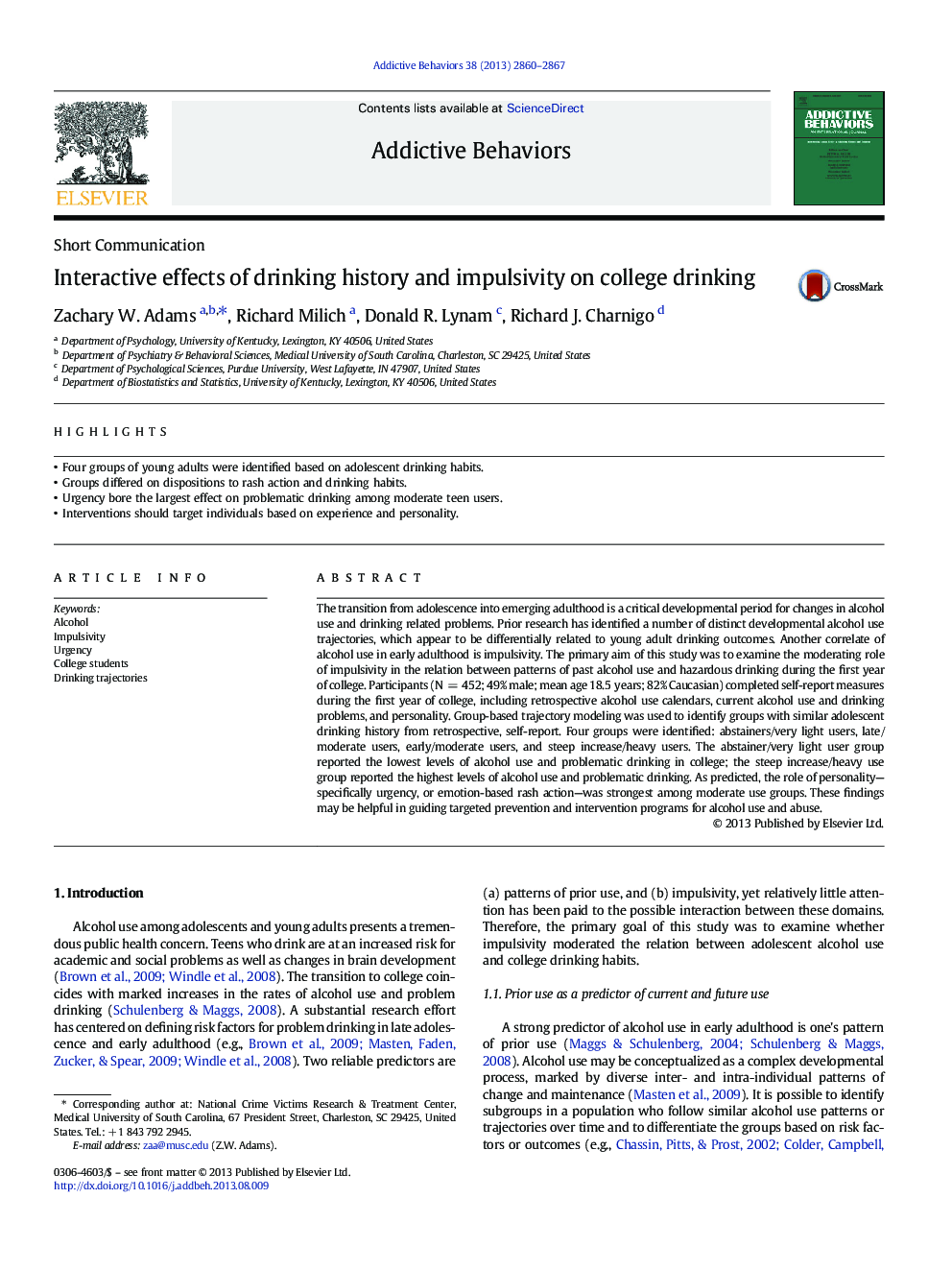| کد مقاله | کد نشریه | سال انتشار | مقاله انگلیسی | نسخه تمام متن |
|---|---|---|---|---|
| 898843 | 915345 | 2013 | 8 صفحه PDF | دانلود رایگان |

• Four groups of young adults were identified based on adolescent drinking habits.
• Groups differed on dispositions to rash action and drinking habits.
• Urgency bore the largest effect on problematic drinking among moderate teen users.
• Interventions should target individuals based on experience and personality.
The transition from adolescence into emerging adulthood is a critical developmental period for changes in alcohol use and drinking related problems. Prior research has identified a number of distinct developmental alcohol use trajectories, which appear to be differentially related to young adult drinking outcomes. Another correlate of alcohol use in early adulthood is impulsivity. The primary aim of this study was to examine the moderating role of impulsivity in the relation between patterns of past alcohol use and hazardous drinking during the first year of college. Participants (N = 452; 49% male; mean age 18.5 years; 82% Caucasian) completed self-report measures during the first year of college, including retrospective alcohol use calendars, current alcohol use and drinking problems, and personality. Group-based trajectory modeling was used to identify groups with similar adolescent drinking history from retrospective, self-report. Four groups were identified: abstainers/very light users, late/moderate users, early/moderate users, and steep increase/heavy users. The abstainer/very light user group reported the lowest levels of alcohol use and problematic drinking in college; the steep increase/heavy use group reported the highest levels of alcohol use and problematic drinking. As predicted, the role of personality—specifically urgency, or emotion-based rash action—was strongest among moderate use groups. These findings may be helpful in guiding targeted prevention and intervention programs for alcohol use and abuse.
Journal: Addictive Behaviors - Volume 38, Issue 12, December 2013, Pages 2860–2867